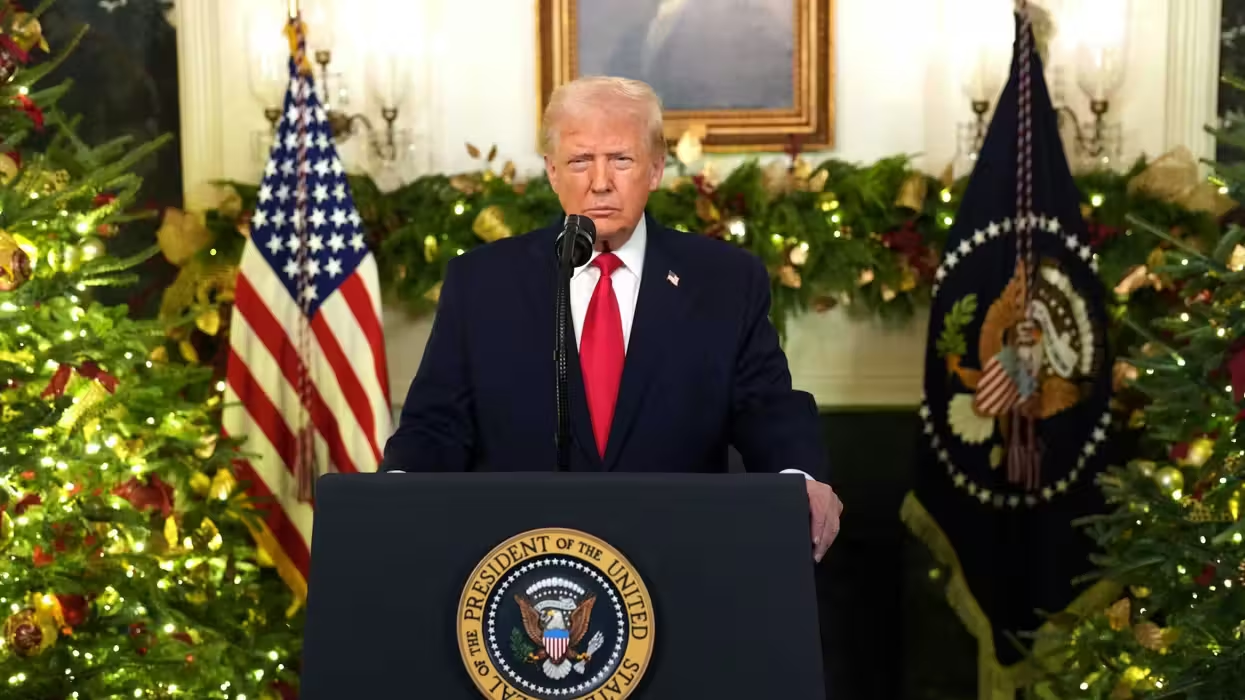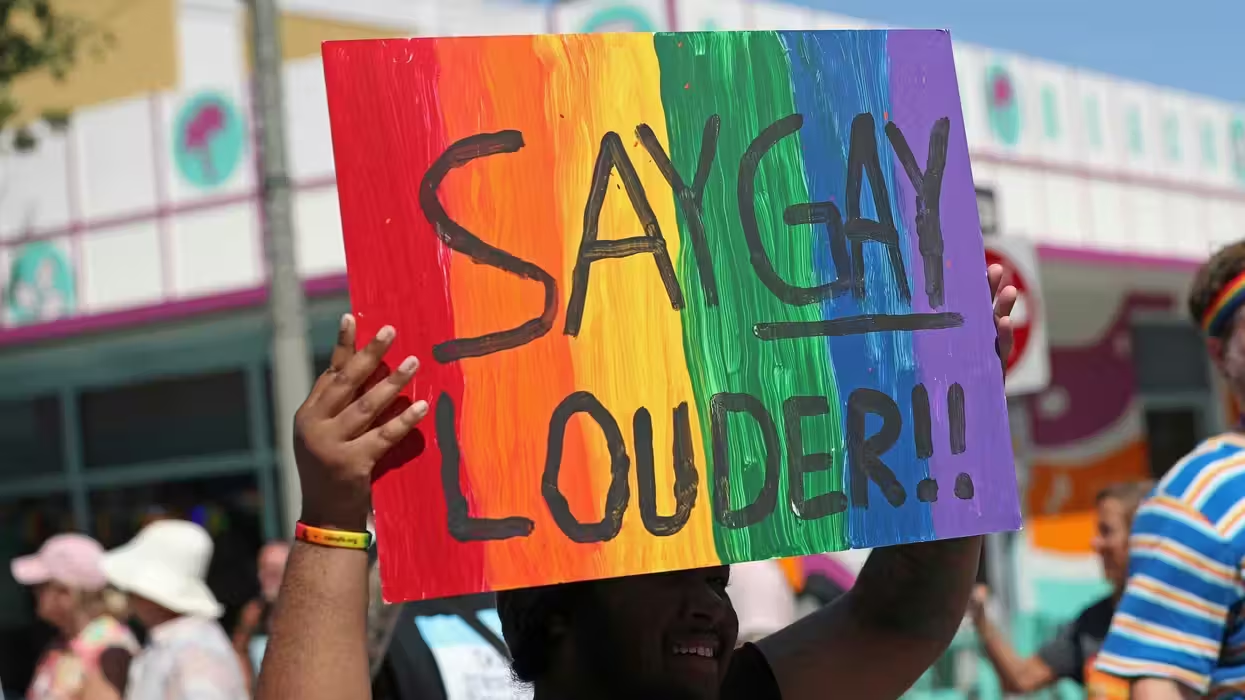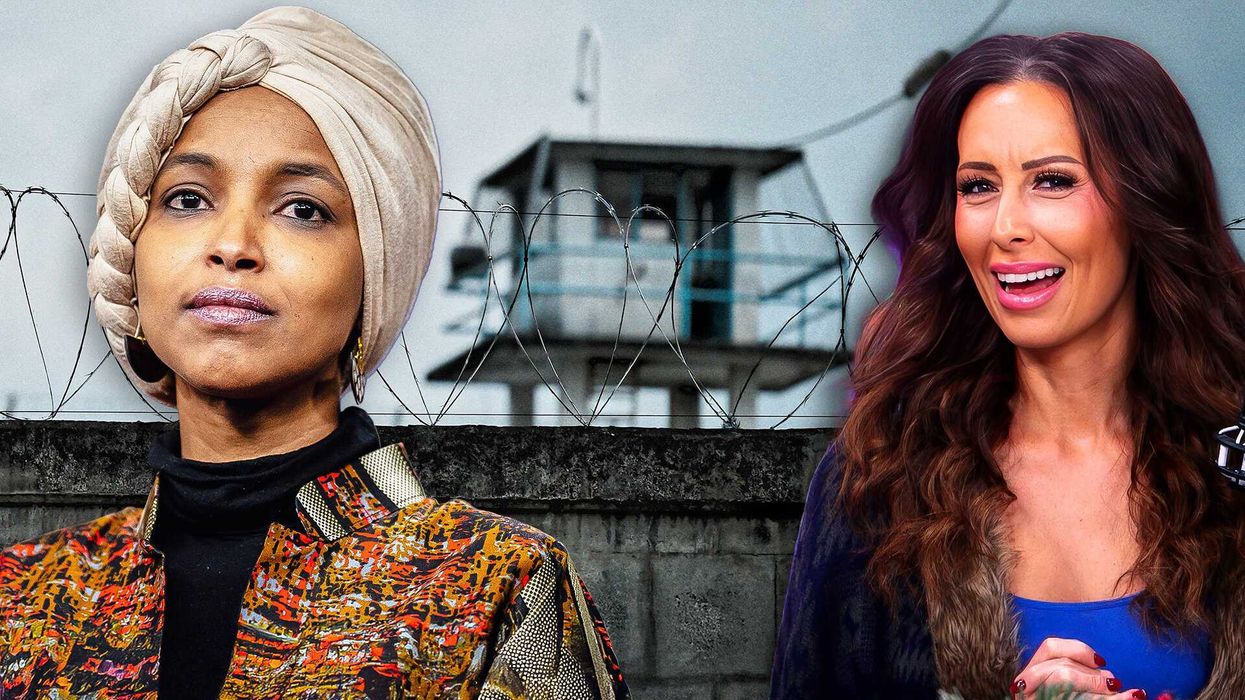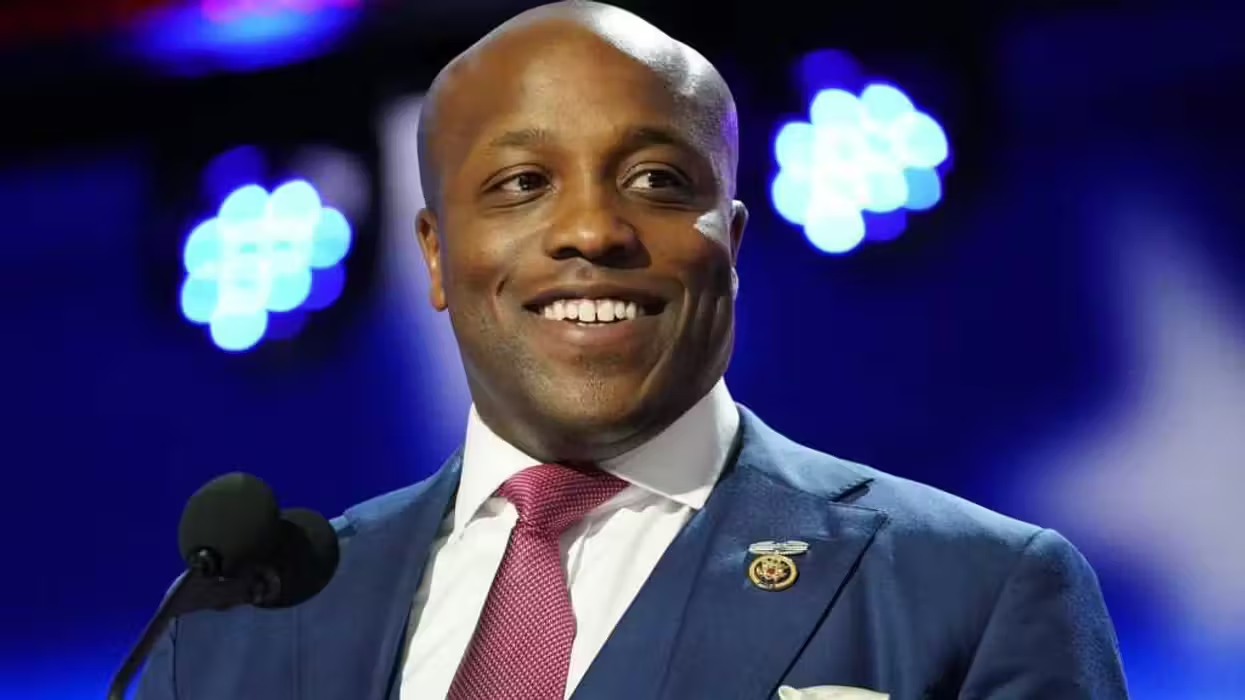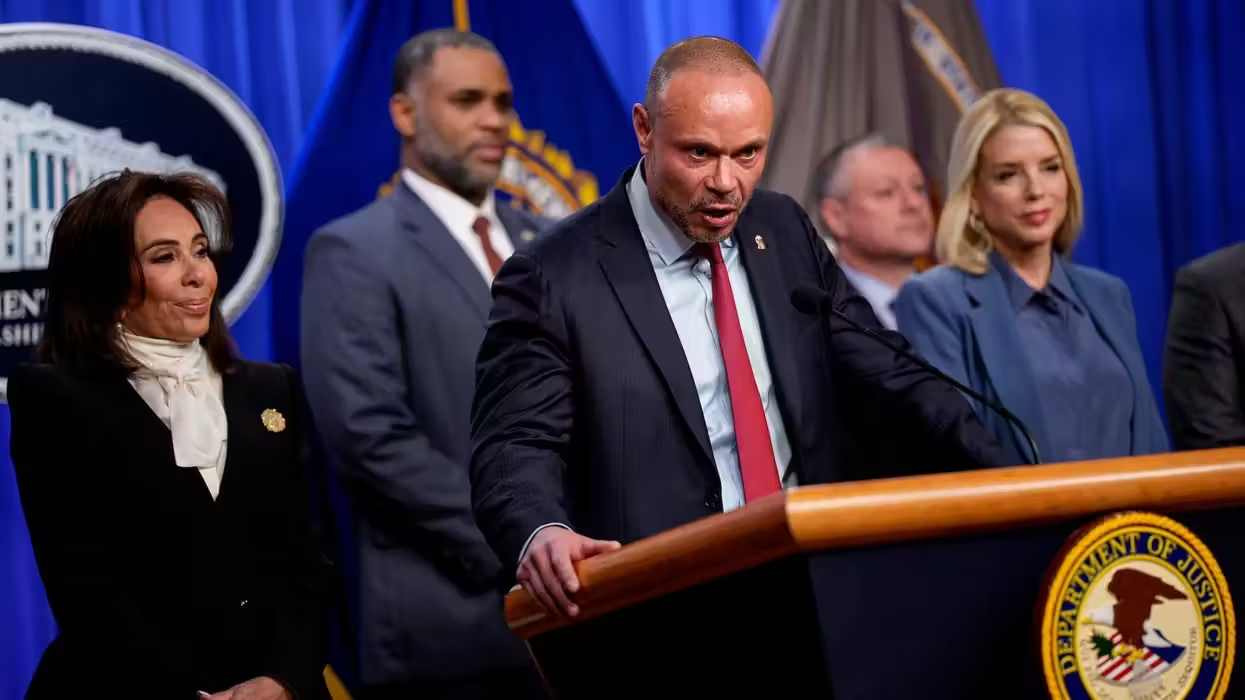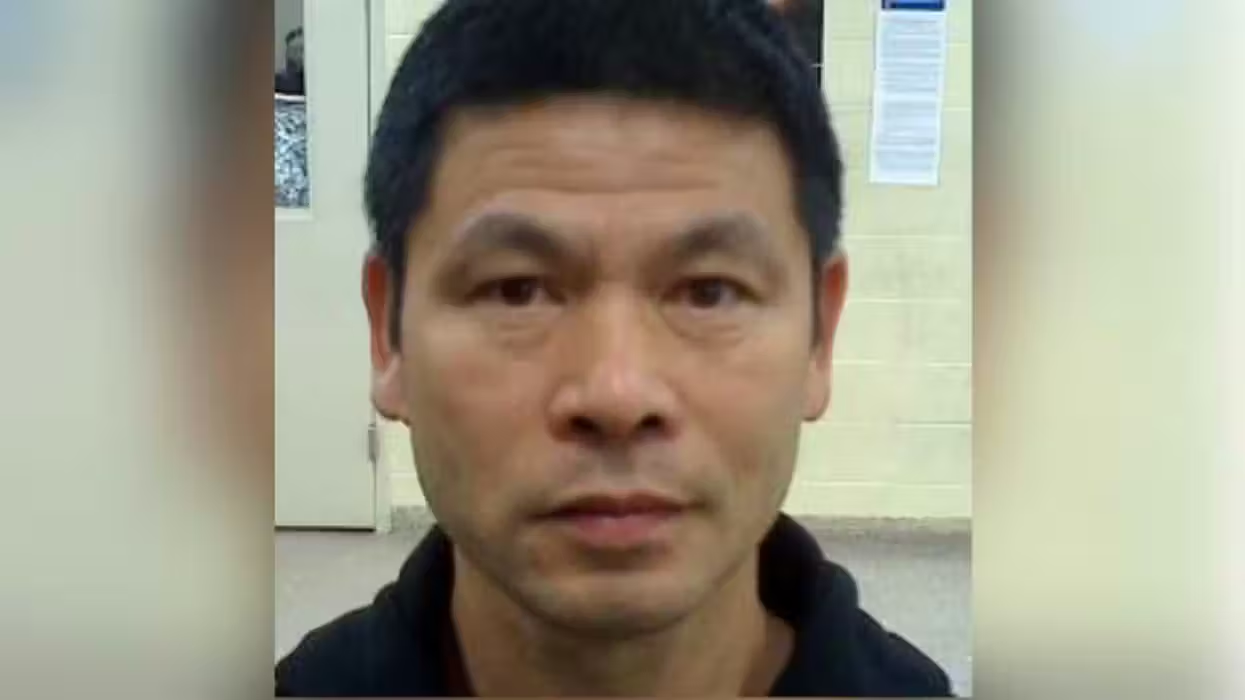
© 2025 Blaze Media LLC. All rights reserved.
 Andrew C. McCarthy. (Image Source: andrewcmccarthy.com)
Andrew C. McCarthy. (Image Source: andrewcmccarthy.com)
We conducted an interview with former federal prosecutor Andrew C. McCarthy, author of the new book, "Faithless Execution: Building the Political Case for Obama's Impeachment," in which we covered a number of controversial issues, including the case for impeaching President Obama, the Bowe Bergdahl terrorist exchange, Benghazi and Hillary Clinton, and the government's efforts to chill free speech.
The below reflects a transcript of the interview, conducted via phone, which is slightly modified for clarity and links.
For more content like this, please give Blaze Books a follow on Facebook and Twitter.
Who is “Faithless Execution” intended for, and why should both President Obama’s critics and proponents pick it up?
McCarthy: The book is intended for the public broadly, because I really thought and continue to think that there is a lot of misinformation and misunderstanding generally about what the standards are for removal of a president from power, what the wages are of having a lawless president, and what the arsenal is that Congress has to respond to it. It seems that there’s a lot of frustration on the part of people with the fact that the president doesn’t seem to be bound by the law, or certainly doesn’t take himself to be bound by the law, and people seem very frustrated that there doesn’t seem to be much that can be done about it. And point of fact, there’s a lot that can be done about it, but there is a lot of ignorance and misinformation out there about what the remedies are. So, what I hope the book will be is a corrective for people in general about what ways presidential lawlessness threatens the Republic, and what responses the Framers put in place that we could use to combat it.
The central point of your book hinges on the notion that impeachment is both a legal but more importantly political remedy. Thus, despite the merits of the case against President Obama, all is moot without their being broad political support for such proceedings. Can you expand on the thesis, explain why impeachment is primarily a political remedy, and provide a little bit of the history behind impeachment itself?
 Menasha attorney Tom Wroblewski, voices his opinion in a "big" way with this billboard stating that the USA should "Impeach Obama". The billboard is located next to the Oshkosh Correctional Institution between the Algoma Blvd. and Jackson St. Exits on HWY 41 North-bound. (Image Source: Oshkosh Northwestern/Kat Brannaman)
Menasha attorney Tom Wroblewski, voices his opinion in a "big" way with this billboard stating that the USA should "Impeach Obama". The billboard is located next to the Oshkosh Correctional Institution between the Algoma Blvd. and Jackson St. Exits on HWY 41 North-bound. (Image Source: Oshkosh Northwestern/Kat Brannaman)
McCarthy: Impeachment has two components. There’s a legal component to it in the sense that the Constitution has a threshold or a standard that applies to presidential malfeasance or maladministration – I guess maladministration is a better term because the Framers weren’t just concerned about corrupt behavior – they were concerned about a president who was in over his head so gross ineptitude even if it was well-meaning was something they were very concerned about simply because the presidency that they created was so powerful, and had so much potential to harm the republic that they were concerned about having someone who was unsuited in that position – whether it was unsuited because of corruption or simply because of reasons of incompetence. They had a straightforward legal test for what would be required to remove a president. Treason and bribery are straightforward enough – they’re actual crimes that have a lot of history and people understand them. The thing that people generally have some confusion about are high crimes and misdemeanors, and maybe it’s because of the phrase itself because it mentions "crimes and misdemeanors," so people naturally think of penal statutes where Congress has enacted laws that qualify as felony criminal offenses or misdemeanor offenses. And that’s not what high crimes and misdemeanors is really about at all.
What the framers discussed when they adopted this standard -- and it was very much on their mind because they were all men of the world, they were all men who followed current events, many of them were steeped in British law -- at the time the Constitution was being debated in the Convention in Philadelphia in 1787, the impeachment trial of Warren Hastings was ongoing in England, where Edmund Burke had led the effort in Parliament to have him impeached on the basis of high crimes and misdemeanors, so it was a phrase, and a term that was very well known to the Framers. And what it really means is, as Hamilton put it, political wrongs, or the offenses of public officials in whom high public trust is vested. So, it doesn’t have to be statutory offenses, and in many ways it’s easier to understand it in terms of the military justice system rather than the civilian penal justice system because it embraces concepts like dereliction of duty, conduct unbecoming of an officer, and the like. It really is about a breach of trust and there is no more trust in our system than what's reposed in the president, who by the way is the only one in the government who constitutionally is required to take an oath of office of the kind that’s spelled out in the constitution, which requires him to swear to preserve, protect, and defend the Constitution. The failure to do that, more than any statutory offense, was something the Framers were much more concerned about.
So the legal test of high crimes and misdemeanors is pretty straightforward. If you have situations where the president violates the trust of the American people by undermining our system and its checks and balances, those would qualify as high crimes and misdemeanors. A president who is dishonest with the public or dishonest in reporting important matters of foreign affairs to Congress and the like would be guilty of high crimes and misdemeanors. A president who is derelict in his duties as commander-in-chief is guilty of high crimes and misdemeanors even though there is no penal offense in the federal code that would match up with that. But the Framers were also very concerned that impeachment not be the result of partisan hackery, trivial offenses, or matters of factions (so the president's part of one faction, Congress is controlled by another, and they can impeach him just for those political and power reasons).
So, what they built into the system was the following: you can impeach the president (that is, allege high crimes and misdemeanors against him) by a simple majority vote of the House of Representatives, but to remove the President requires a supermajority vote of the Senate, and, as the Framers well understood, the only way you can get a Senate supermajority vote of the Senate is if there is a strong public disposition that the president needs to be removed. Absent that kind of political pressure, there is not going to be a two-thirds vote to remove the president. So the bottom line is you can have a thousand impeachable offenses, but if the public will to remove the president is not there, the president will never be convicted in the Senate, and therefore he will not be removed from power. And the only time it's really worth going down the very painful impeachment route for the country is if there is a public will to remove the president over very serious high crimes and misdemeanors.
In the book, you lay out three key checks on presidential overreach or abuse of power. You say that you can remove a president at the ballot box, which the public failed to do. Congress can use the power of the purse, and not disburse the funds for the President’s agenda, a power one suspects Congress will likely be afraid to use again during President Obama's tenure. The third is building the political will necessary to force Congress to impeach. My question is, why should the average American care that there is a constitutional crisis regarding the unconstitutional usurpation and abuse of power by the executive branch, and thus take an interest in impeachment?
McCarthy: Well, what the framers recognized, and this is a lesson probably most articulately stated by Madison, and it’s certainly a lesson that’s found in Montesquieu who was very influential on the Framers: If all of the power in government – which is to say the legislative, the executive, and the judicial power – and even the separation of power between the federal government and states -- if all the power is accumulated in one place, then you have tyranny, which is the why the framers spent so much time carefully dividing what the different responsibilities of governance were for both the president and the congress, for the judiciary, and derivatively, also between the federal government and the states.
The genius of our Constitution is the recognition that if you are going to have a free republic, and they were obviously trying to sculpt a constitution for a free Republic, the only way that you can bring that about is to check this tendency of people who have political power to try to accumulate more of it to themselves. So the framers I think brilliantly balanced the different powers between different branches, so no one could tower over the other. The reason that ‘s not just a law school exam question or a law school exam concern, but really that’s a concern for all Americans (or should be), is because our freedom depends on it. If you have one political actor that exercises all of the different powers, the tendency will be to exercise it capriciously. In that way, it's then done without the effective checks of the other branches of government.
So the reason people need to be concerned – and this is something that oughtn't be a partisan issue, or an ideological issue but is a freedom issue – is that if too much power accumulates in one actor – if it’s usurped by one political actor -- our freedom is profoundly threatened. And if the way it’s threatened, as President Obama is doing it, is setting precedents that erode the separation of powers, then what you've done is you've put in place a government really by presidential whim, as opposed to the kind of government that was designed for us by the Framers. So what's at stake for us in this is our liberty, more than anything else and that's the reason it's a concern, and it ought to be a concern that cuts across partisan lines.
What is the one most compelling piece of evidence, in your view, that indicates that President Obama should be impeached?
 President Obama has been pushing executive actions as one means of working around Congress in 2014. (Image Source: heartland.org)
President Obama has been pushing executive actions as one means of working around Congress in 2014. (Image Source: heartland.org)
McCarthy: You know this is a great question because I have something that I think is, systemically speaking, the most compelling point. And then there is one large-scale transaction that the administration is involved in which is more offensive to me personally, but may not be systemically of as great importance.
Probably systemically, the most important thing that we’re dealing with when we’re talking about President Obama is his refusal to faithfully execute the laws, and his usurpation of Congress' powers to write the law – even with legislation that the President supported, like the Obamacare law that’s very controversial. The president assumes a power to basically enforce those parts that he cares to enforce, refuse to enforce other provisions of it, and amend it at will as he goes along based on what’s politically convenient for him. I don’t think that even the president's most staunch supporter can deny that the president systematically has usurped Congress’ lawmaking powers. And in terms of our system – and in terms of wanting to prove something that the other side really couldn’t dispute – I’d say that’s probably the strongest one, and systemically, the most dangerous one.
The one that most offends me is Benghazi, because I think there you see the full run of corruption and fraud of this administration, beginning – and I take Benghazi back to the war that the president instigated without provocation in the absence of American national interest – waged under false pretenses because he said he was following the mandate of the United Nations and international law, but the only mandate they had was to protect civilians. What he actually did was make war on the Qaddafi regime. It was knowingly done under circumstances where it was totally foreseeable that the effect would be to empower anti-American jihadists. They unbelievably put American personnel in Benghazi and then didn’t protect them adequately. It was perfectly obvious that September 11 would be the kind of day that you can have an attack, particularly after the site itself had been attacked before. And then they fraudulently misrepresented what happened, with what was obviously a terrorist attack -- by trying to snow people into believing that it was caused by this anti-Muslim video. That was not only a complete fabrication, but it was bolstered by something that ought to offend every American, which is this trumped up prosecution against the video maker, which to the Muslim countries, it was portrayed as an American submission to sharia standards, to satisfy them. And to the American people, it was portrayed as something that bolstered the case that the video, rather than a coordinated terrorist attack, was responsible for the massacre. To me, Benghazi is the most offensive of what I regard as impeachable offenses.
And of course we also spent taxpayer dollars to put out video to the Muslim world apologizing for the video of the film-maker.
 The State Department put out a video in which President Obama and Secretary of State Clinton disavowed the content of the video they initially claimed prompted the terrorist attack in which U.S. Ambassador Chris Stevens and three others in Benghazi were slain. (Image Source: Youtube screengrab)
The State Department put out a video in which President Obama and Secretary of State Clinton disavowed the content of the video they initially claimed prompted the terrorist attack in which U.S. Ambassador Chris Stevens and three others in Benghazi were slain. (Image Source: Youtube screengrab)
McCarthy: That’s exactly right. And you know the other figure who worms her way throughout the Benghazi escapade is Hillary Clinton, who was right behind that exercise that you’re talking about, and in addition, was I think probably very likely to be along with the president, the brains behind the video fraud. You know, I think I’m probably the first person write about this, but there was this call at ten o'clock in the evening on the night of the Benghazi massacre between Hillary Clinton and the president. The White House initially denied that there had been any telephone communication between Obama and Mrs. Clinton. They only conceded that it had happened after Mrs. Clinton testified to it. And within minutes of this conversation between Hillary Clinton and the president, the first official communication from the administration goes out – a statement by Mrs. Clinton blaming the video for the Benghazi massacre.
Speaking of Hillary and Benghazi, do you have any comments as to the excerpt from her book that was released last week, which basically said that people shouldn’t be politicizing the issue of Benghazi, etc.?
MCarthy: I think it’s remarkably telling that the government official who most politicized this event, and who had the audacity at the solemn ceremony at Andrews Air Force Base, when the bodies of our dead were returned…who had the audacity on that occasion to politicize it, and make it about the video, rather than a broad failure of Obama’s policy, which is what everybody at that time knew that it was…For her of all people to come out at this point and say that this is something that shouldn’t be politicized when she politicized it in the most shameful way I can imagine is very difficult to swallow.
There was a question on one of the Sunday shows this past weekend in light of the President’s West Point speech about what the Obama doctrine is on foreign policy, and that got me thinking about Hillary. Do you think that Hillary will bear the burden of the Obama administration's failings on foreign policy, or do you think that she will say that she was simply carrying out the orders of the Commander-in-Chief?
McCarthy: I think if she runs for president, she will bear the burdens of it, but in some ways she will do exactly what Obama does, which is she will say whatever she needs to say to get through the crisis of the moment, and judging by her career, there will always be a crisis of the moment, either because of her ideology or because of her foolishness. She’ll constantly have to come up with rationales for them, and if she thinks she can get away with saying "Obama made me do it," she’ll do that. If she thinks that that paints her as somebody who wasn’t as influential as she wants to be understood as, she’ll come up with some other way to explain it. I’m not convinced that she’s running for President, so I’m taking a wait and see on that.
Do you think that’s primarily because of her health?
McCarthy: It’s her health, this point in her life, it's kind of the fact that the last time she looked like the heir apparent, and the reason she didn’t get it was because of the sad fact for her that half the Democrats didn’t want her, and she could only get so high in the Democratic popularity polls. And the reason for that was that she simply wasn't as popular among even Democrats as her media people put out. And the way I see it, she's got the same problems now, except she's also got Benghazi and a few other problems to carry around. It seems to me that the original structural problems she had with her overrated popularity hasn’t changed, and now she’s got actual things to answer for, which I don't think she can.
Let’s move away from Hillary but stay on foreign policy for a bit longer. If you were to incorporate a section of your book on Bowe Bergdahl – and I know you wrote a piece about him and our policy more broadly in Afghanistan this weekend – how would that section read, and is the trading of terrorists for Bergdahl in an of itself an impeachable offense?
 Jani Bergdahl, the mother of freed US soldier Bowe Bergdahl, speaks to the press while her husband Bob Bergdahl and US President Barack Obama look on in the Rose Garden of the White House on May 31, 2014 in Washington, DC. Obama and the Bergdahls spoke after the release of Bowe Bergdahl by the Taliban in Afghanistan. (Image Source: AFP PHOTO/Mandel NGAN MANDEL NGAN/AFP/Getty Images)
Jani Bergdahl, the mother of freed US soldier Bowe Bergdahl, speaks to the press while her husband Bob Bergdahl and US President Barack Obama look on in the Rose Garden of the White House on May 31, 2014 in Washington, DC. Obama and the Bergdahls spoke after the release of Bowe Bergdahl by the Taliban in Afghanistan. (Image Source: AFP PHOTO/Mandel NGAN MANDEL NGAN/AFP/Getty Images)
McCarthy: You know this is a terrific question because it on a lot of levels addressing a lot of things that come up in the book. I think the bottom line is that this again shows why impeachment is more of a political than a legal remedy.
I think there’s a profound constitutional question about whether the National Defense Authorization Act is constitutional in the way that it limits the president's ability to have control over prisoners of war in wartime, which has always been a sort of plenary presidential power up until recently. The remarkable thing about this of course is that when we made these kinds of arguments during the Bush administration, it was the Obama left and Senator Obama himself who claimed that the Congress had all this ability to cabin the president’s constitutional authority as commander-in-chief, and now they are exercising the very powers they condemned Bush for exercising. That's I guess beside the point in terms of the constitutional question. You could argue for a long time about where Congress has the authority to trim the president’s sails in terms of the president's own constitutional authority, and where the president can act regardless of what a statute says, because you know the bottom line is, a statute cannot amend the constitution. If we are dealing with powers that the constitution says the president has, they cannot be curbed by statute.
On the other hand, what people are not focused on, and I wrote a little bit about this – material support to terrorism is a criminal offense. And what the president has done here is return personnel to the Taliban, and not just any personnel, but highly experienced and highly effective terrorists, which will make the Taliban a much more effective organization and fighting force against Americans. More important than the violation of the National Defense Authorization Act, which is arguable, is the violation of the material support to terrorism statute, which I don’t think is arguable. Much more important than the legal niceties of the situation are the political ones. I think it's an astounding dereliction of duty on the part of the president in wartime, while we still have soldiers in harm’s way and we still have the Taliban conducting terrorist operations against American forces, to under those circumstances, basically replenish the Taliban, is just astonishing. I think that in terms of, "Is it a high crime and misdemeanor?" You bet it is. Whether or not it violated the National Defense Authorization Act is an interesting academic question, but it misses the point of what the president's duty is here in this regard.
With respect to the "blind sheikh," is there any relevance between what happened with Bergdahl, and what you think will happen with the "blind sheikh" during Obama's second term, or do you think it more sets a precedent for the release of prisoners from Gitmo, which was an Obama agenda item from the start.
 The Blind Sheikh (File)
The Blind Sheikh (File)
McCarthy: As I’ve written, I think that the State Department and the Obama administration engaged in serious negotiations with Egypt – particularly when Morsi was running the government, when the Muslim Brotherhood was in charge of the government – engaged in serious negotiations that embraced at least the possibility of freeing the blind sheikh. It's something the Egyptian Islamist groups have been demanding since we put him in jail back in 1993. I don’t think they've ever really stopped. I think this is the first administration that embraced the possibility of it. And I think what happened with these Taliban operatives who have been released shows that national security concerns are not going to be a showstopper with this administration in terms of the kinds of terrorists you would release.
I would bear in mind that we're dealing with an administration that, if you even look at the Justice Department, Eric Holder was right smack in the middle during the Clinton days of the release of the FALN terrorists, even though they didn't even ask for clemency. And in Clinton’s last day in office, the Marc Rich pardon is the one everyone remembers, but he also pardoned a couple of members, or commuted the sentences of a couple of members of the Weather Underground. So I would never put it past this administration that it wouldn’t release any terrorist if it thought the price was right. For them, the price is not about American interests or American national security; it’s often what their base is demanding at any point in time.
There’s been a lot of news recently – whether on college campuses with speakers like Ayaan Hirsi Ali being pulled, or the case of Michael Mann versus Mark Steyn, and innumerable other instances of the stifling of free speech in civil society. One issue you speak to in your book that strikes me as particularly chilling and highly overlooked is the government’s complicity with the OIC [Organization of Islamic Cooperation] with respect to criticism of Islam or as President Obama said, not slandering the prophet of Islam. Speak a little bit to the governmental effort to stifle speech as relates to criticism of Islam and sharia.
McCarthy: The work that’s been done by the administration, which really goes back to 2009 with the Organization of Islamic Cooperation (OIC), is really offensive and ought to be offensive to people who understand what happened here. Basically, what they have done is collaborated with sharia states – that is, Arabic states that are substantially Muslim countries that have governments that are either flat out sharia governments, or at least largely influenced by sharia. And the OIC's purpose, essentially, is to spread sharia standard by way of international law throughout the world.
One important sharia standard – one that is completely antithetical to Western thought, Western enlightenment – is the sharia blasphemy standard, which essentially makes it a crime to subject Islam to any criticism whatsoever. They interpret that so broadly as to be that anything that could negatively reflect on tenets of Islam or the prophet is something that they don’t want to have discussed, let alone debated, and the like. And what this administration has done from its first days is to try to figure out a way to shoehorn that into Western law and into American law without people noticing that it is a profound violation of the First Amendment, free speech and free expression. The coup de grace is this resolution 16/18 – a UN Human Rights commission resolution -- which purports to make it unlawful to engage in speech that not only would instigate violence (which by the way is already illegal – there's no reason to make a law about that), but that might incite hostility toward religion, which is obviously an attempt to codify in American law what the sharia blasphemy standard is, and is a blatant violation of the First Amendment.
It should offend people because it is something that the administration has done from its first days. They know it's a violation of the First Amendment because Mrs. Clinton when she was explaining it when she was Secretary of State, said that they might have to rely where the law could go no further on old-fashioned peer pressure. People should be very frightened by the prospect of the government when it's not got a legal basis to harass Americans…to stoke peer pressure on conduct that is protected by the Constitution. The reason we have a government is to protect us in the exercise of our rights, and what this government does is figure out ways – whether they’re legal or extortionate – to stop us from exercising our constitutional rights.
In your view, do the offenses of the Obama administration reflect a naïveté in ideology or a concerted effort to proactively undermine the Constitution? In other words, is it useful idiocy, incompetence, or a cynical strategy to gain power that governs President Obama’s decisions, to your mind?
McCarthy: I don’t think there’s a silver bullet on that one. If this was multiple choice, I'd say "all of the above." The President came in with a very brazen promise to fundamentally transform the United States of America, and if you have a minority that is governing the country, and is committed to that, then you really have to violate the law in order to do it because most people don’t want the country fundamentally transformed. There may have been a lot of people out there cheering that rhetoric on without giving it much thought. But that’s not to say the country doesn’t have problems, but most people are pretty happy with the country. They don’t want it fundamentally transformed. And the only way you could therefore go about transforming it in the vision of the president’s ideology would be to override the law, so that’s really why he had to do it. And I think sometimes, their ideology is sort of a knee-jerk substitute for thinking, and other times, they’re just inexperienced at governance, and they handle things incompetently. Sometimes with some issues, they're quite intentionally overturning the constitutional order, and other times they're just overmatched by events and their own level of competence, so I don't think there's just one explanation that covers all of it.
Want to leave a tip?
We answer to you. Help keep our content free of advertisers and big tech censorship by leaving a tip today.
Want to join the conversation?
Already a subscriber?
Ben Weingarten is a writer, commentator, and editor at large at RealClearInvestigations. He is a senior contributor at the Federalist and writes columns for Newsweek and the Epoch Times.
Ben Weingarten
Ben Weingarten is a writer, commentator, and editor at large at RealClearInvestigations. He is a senior contributor at the Federalist and writes columns for Newsweek and the Epoch Times.
more stories
Sign up for the Blaze newsletter
By signing up, you agree to our Privacy Policy and Terms of Use, and agree to receive content that may sometimes include advertisements. You may opt out at any time.
Related Content
© 2025 Blaze Media LLC. All rights reserved.
Get the stories that matter most delivered directly to your inbox.
By signing up, you agree to our Privacy Policy and Terms of Use, and agree to receive content that may sometimes include advertisements. You may opt out at any time.

